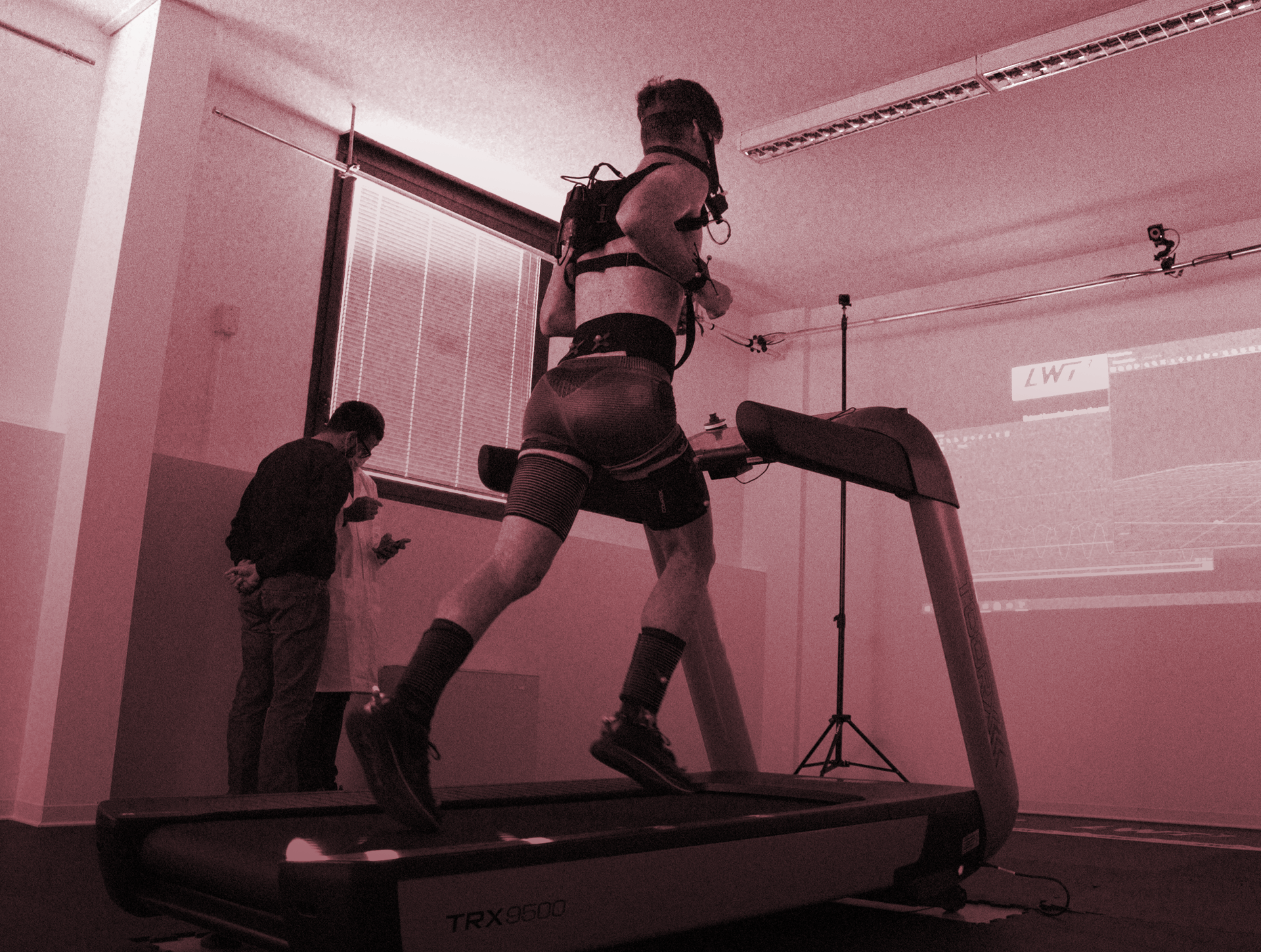
Services
We help you inhancing your performance with our technology and
know-how to support your training and racing strategy decisions with effective insights from data
Performance analysis
Performance Analysis focuses on evaluating and improving athletic performance through various methods and tools. It involves examining and analyzing different aspects of an athlete's performance to identify strengths, weaknesses, and areas for improvement.
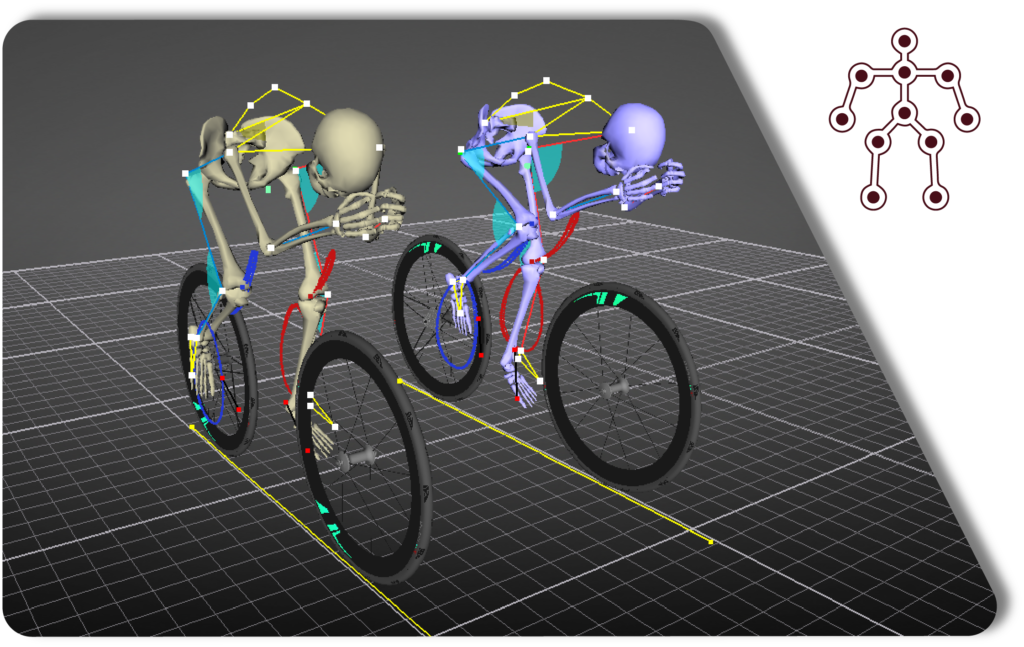
Biomechanics
Involves the study of the mechanical principles and forces that affect human movement. In the context of performance analysis, biomechanics is used to analyze and optimize an athlete's technique, form, and efficiency in various movements and sports-specific actions, including bike fitting for correct positioning.
We are able to perform assessments on a multitude of situations and actions with a high accuracy and analyze the data. We also use the system to provide animations in 3D and VR/AR environments.
- Functional / Biomechanical 3D Assessment
- Dynamic analysis and pedaling/running efficiency
- Biomechanics (motion capture and aerodynamics)
-Bike fitting/cleat positioning
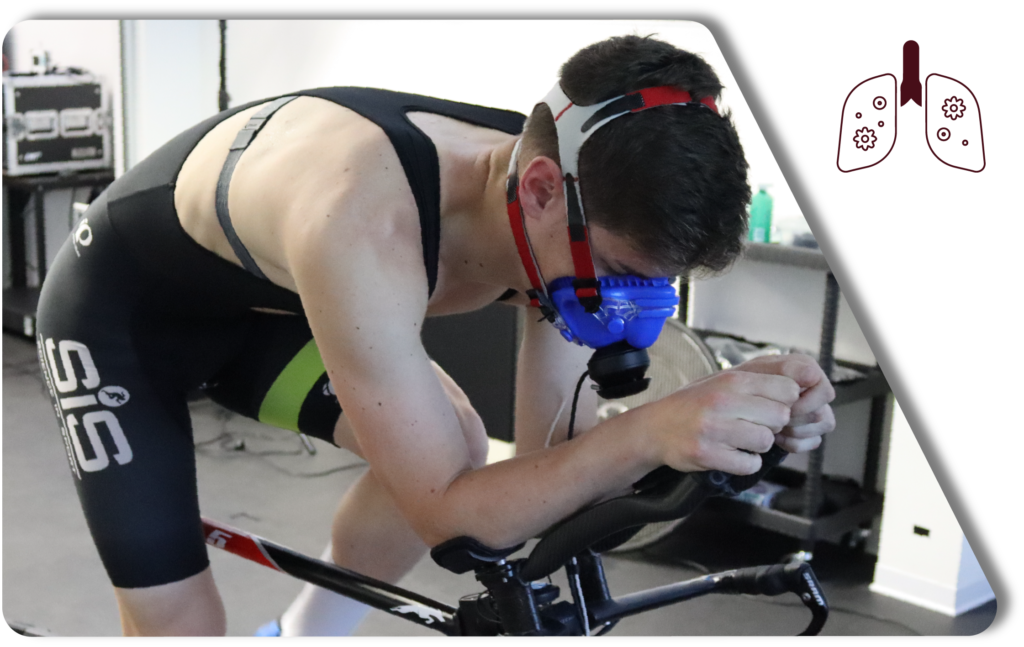
Physiologic and Metabolic Test
We perform metabolic testing, for characterization and investigation of various performance limiters. Both in the area of individual athlete testing and inter-team comparison.
The tests are conducted to assess an athlete's physiological responses and metabolic functions during exercise. These tests provide valuable insights on the overall physiological performance.
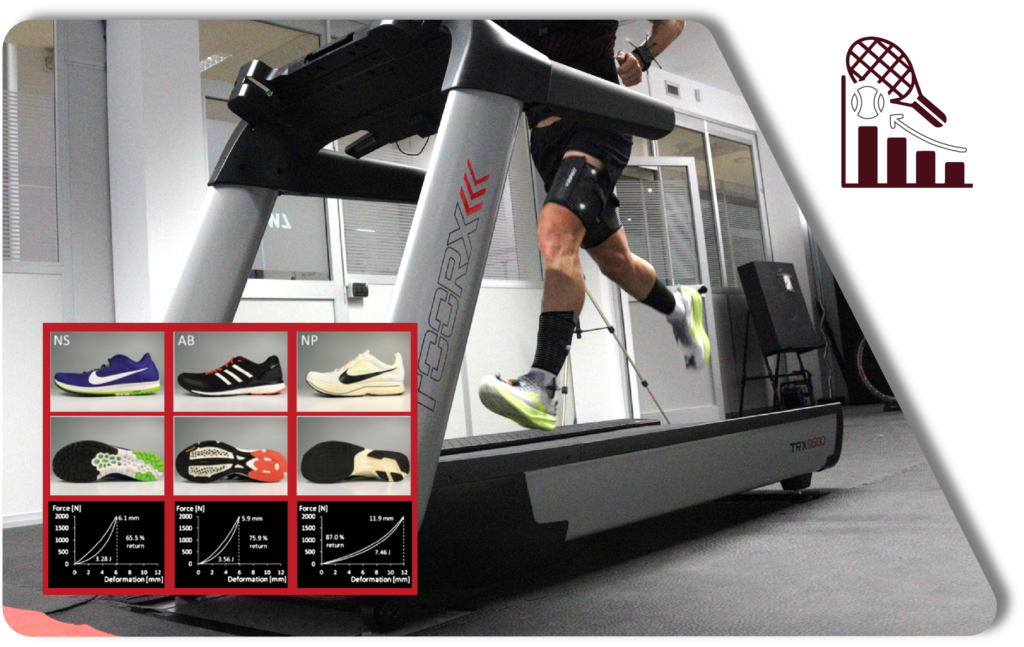
Gear Test
Evaluating and assessing sports equipment and gear to determine their performance, functionality, durability, and suitability for specific sports or activities. This helps athletes select the most appropriate gear that can enhance their performance and ensure their safety
- Running Shoes
- Bike equipment
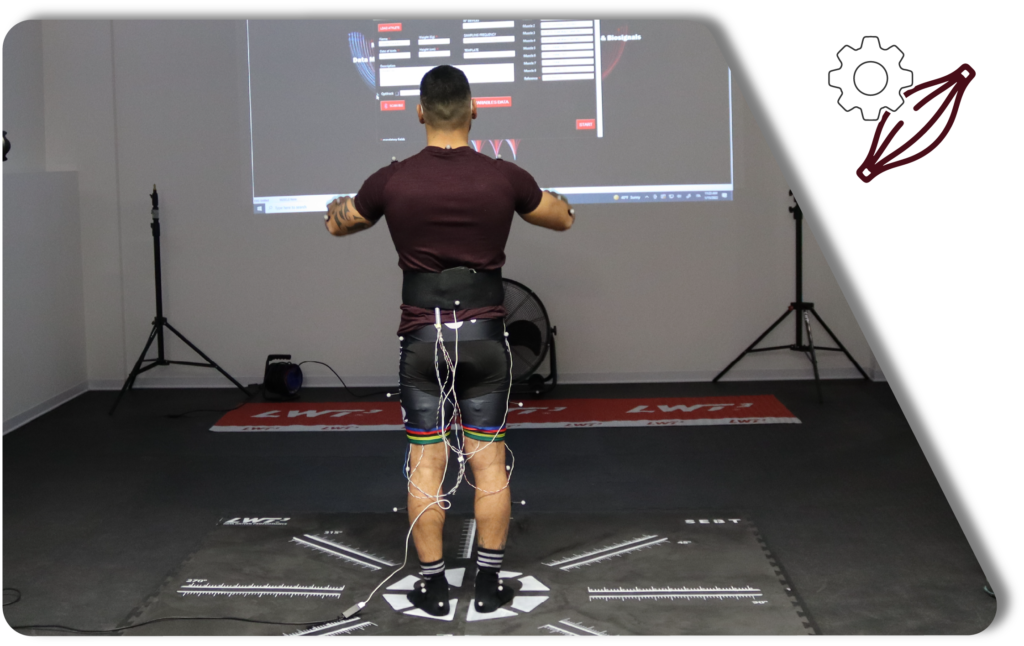
Neuromuscular
This aspect focuses on the relationship between the nervous system and the muscles, particularly in relation to movement control, coordination, and motor skills. By analyzing neuromuscular patterns and responses, including using sEMG (surface electromyography) systems, performance analysts can identify opportunities for optimizing movement efficiency and reducing the risk of injuries.
- Strength Assessment
- Neuromuscular activation and fatigue analysis (sEMG)
- Mobility / Flexibility
- Athletic gesture analysis
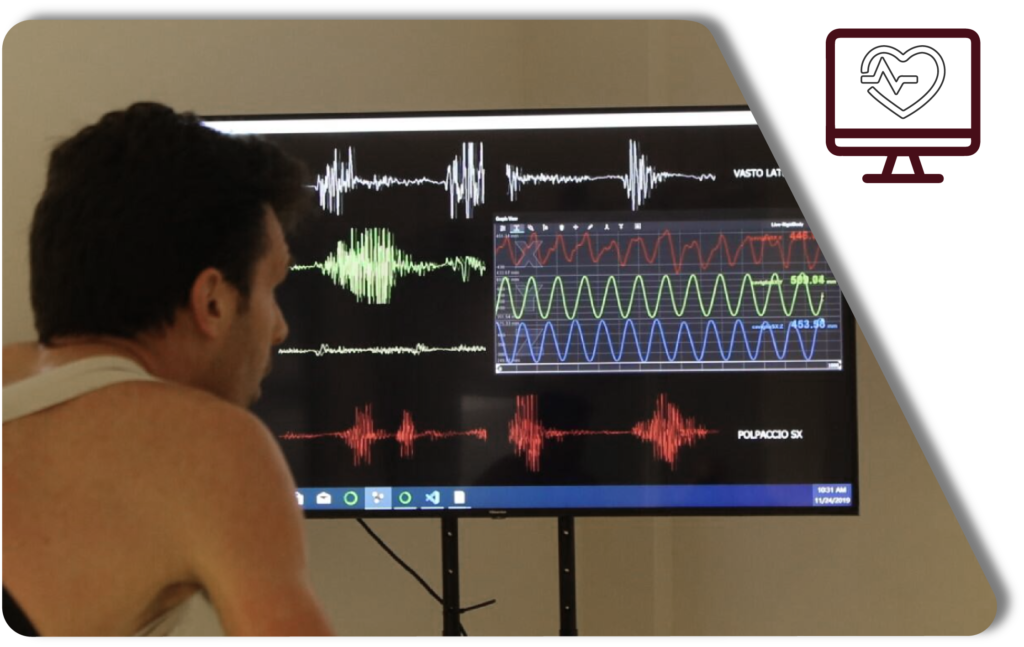
Continuous monitoring
Involves the real-time and ongoing collection of data related to an athlete's performance and physiological parameters. It utilizes wearable sensors and devices to track and monitor various metrics such as heart rate, motion, fatigue levels, and other relevant data points. This provides valuable information for performance assessment, injury prevention, and training adjustment.
Research & Development
Research and Development (R&D) focuses on exploring new technologies, methodologies, and approaches to advance the field of performance analysis. It involves conducting studies, experiments, and innovations to develop cutting-edge tools and techniques that can enhance athletic performance and optimize training strategies.
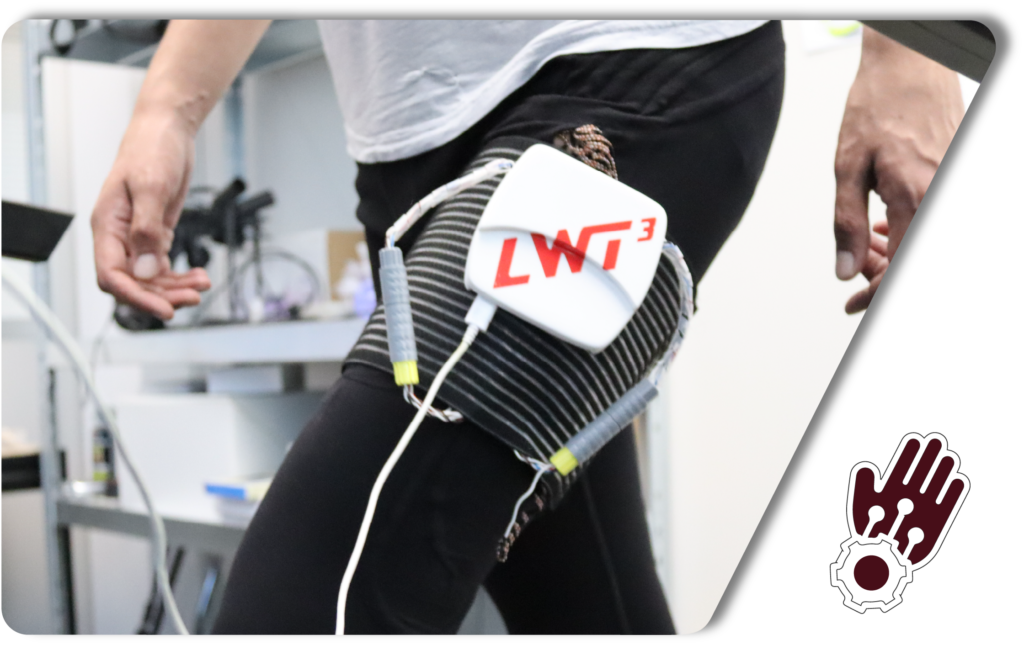
Sensor design and development (wearable computer)
Sensor design and development refer to the creation of wearable computer systems and devices equipped with sensors to collect data during physical activities. These sensors can track various parameters such as motion, heart rate, muscle activity, and environmental factors, providing valuable insights into an athlete's performance and well-being.
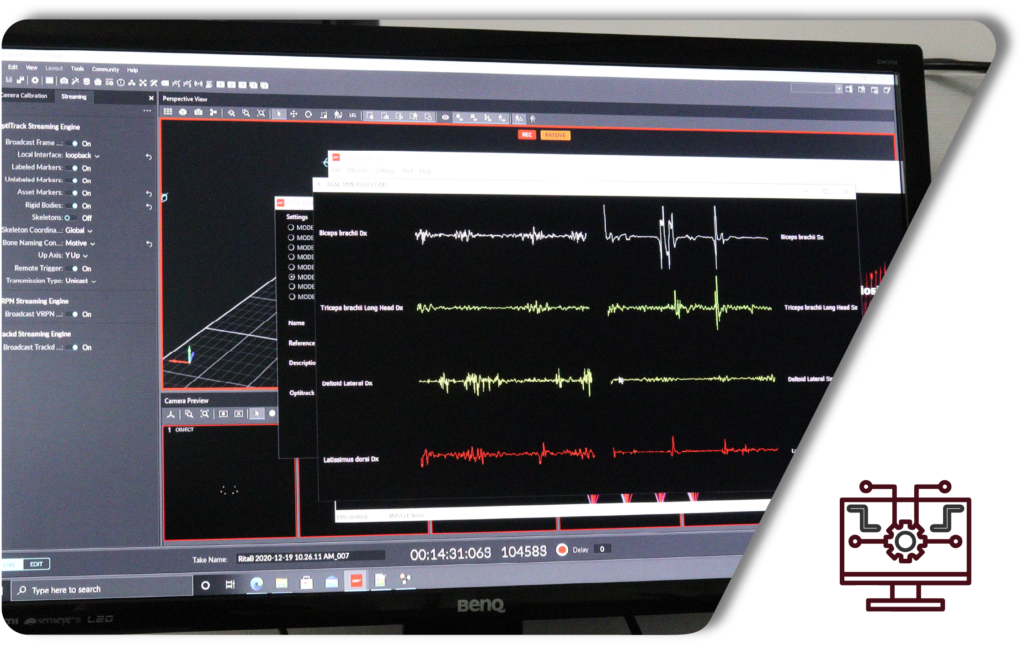
Ad hoc software development
It refers to the creation of custom software solutions tailored to specific performance analysis needs. It involves designing and building software applications or tools that can collect, analyze, and visualize data related to an athlete's performance, enabling informed decision-making and performance optimization.
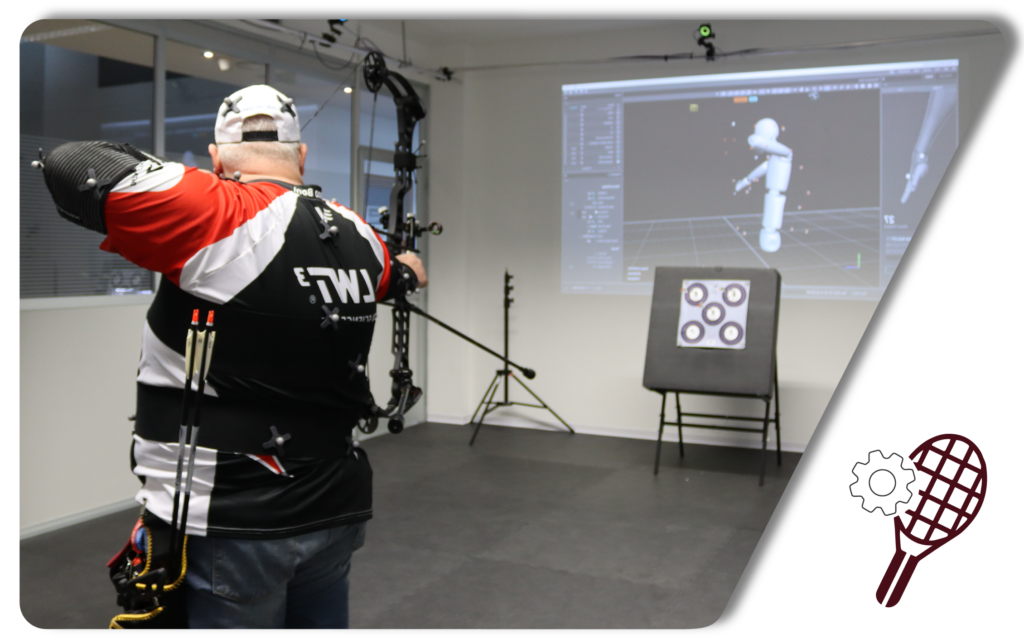
Material equipment assessment
Our Material Equipment Assessment services are specifically designed to cater to companies engaged in the development of sports equipment. Whether you are a manufacturer, designer, or brand in the sports industry, we provide comprehensive evaluations and analysis of your products. Our expertise allows us to assess the quality, functionality, and performance of the sports equipment you develop.